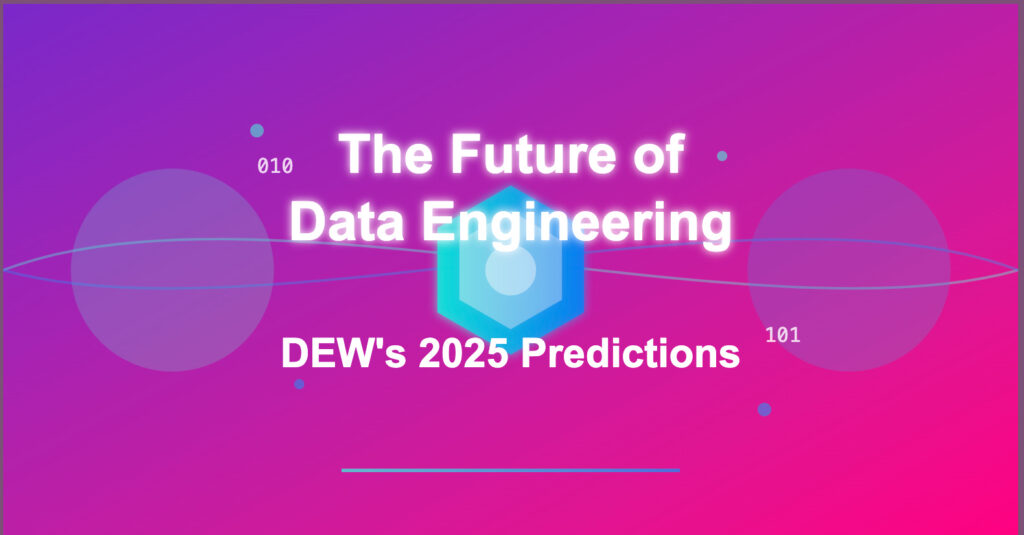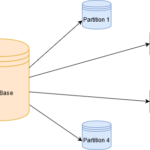The advancement of AI technology has revolutionized the field of data engineering for Big Data, paving the way for new possibilities and unprecedented levels of efficiency. AI-powered data engineering algorithms are poised to reshape the landscape of Big Data analytics, enabling organizations to extract actionable insights from vast and complex datasets with greater speed and accuracy. In this era of exponential data growth, integrating AI into data engineering processes holds the key to unlocking the true potential of Big Data and driving innovation across industries. This article explores the future of AI-powered data engineering, its implications for Big Data, and the significant role it plays in shaping the future of data-driven decision-making.
The Rise of AI in Data Engineering
As the world becomes increasingly data-driven, the role of AI in data engineering is rapidly evolving. With massive amounts of big data being generated every day, organizations are seeking efficient solutions to manage, process, and analyze this data. AI technologies, such as machine learning and natural language processing, are becoming integral to modern data engineering practices.
Transforming Data Processing with AI
Traditionally, data processing has been a time-consuming, labor-intensive task. However, AI is revolutionizing these processes. Here are some key transformations:
- Automated ETL Processes: The extraction, transformation, and loading (ETL) of data can now be automated using AI algorithms, leading to decreased human error and increased efficiency.
- Real-Time Data Processing: AI algorithms can analyze data as it streams, allowing businesses to make real-time decisions based on the most current information.
- Predictive Analytics: AI and big data analytics enable organizations to predict trends and behaviors, optimizing their operations and strategies.
The Role of Machine Learning in Data Engineering
Machine learning (ML) plays a pivotal role in shaping the future of data engineering for big data. Organizations can leverage ML algorithms to identify patterns and insights from massive datasets. The following are areas where ML is making a significant impact:
- Data Quality Assurance: Machine learning algorithms can assess and ensure the quality of data by identifying anomalies and inconsistencies.
- Data Integration: ML can automate the process of merging data from different sources, making integration faster and more accurate.
- Smart Data Lakes: AI-driven data lakes can categorize and organize large volumes of data based on usage, making it easier to retrieve relevant information.
Natural Language Processing in Data Engineering
Natural Language Processing (NLP) is another AI technology that is reshaping data engineering. NLP enables machines to understand and interpret human language, opening new avenues for data analysis:
- Sentiment Analysis: Organizations can utilize NLP to analyze customer feedback, reviews, and social media to gauge public sentiment.
- Automated Reporting: NLP can generate reports in natural language from complex data sets, making insights more accessible to non-technical stakeholders.
- Curated Data Retrieval: Questions posed in natural language can be interpreted by AI systems, allowing users to retrieve data without needing to know precise queries or syntax.
Data Governance and Compliance
Data governance is a crucial aspect of data engineering, especially in the age of big data. As regulations become increasingly stringent, AI solutions are emerging to assist organizations in ensuring compliance:
- Automated Compliance Checks: AI can continuously monitor data for compliance with regulations such as GDPR and HIPAA, reducing the risk of violations.
- Data Lineage Tracking: AI technologies can track data as it moves across systems, helping organizations maintain oversight and comply with regulatory requirements.
- Policy Enforcement: Machine learning models can enforce data policies automatically, ensuring that data is accessed and used according to organizational rules.
Enhancing Data Security with AI
The integration of AI in data engineering is also crucial for improving data security. Cybersecurity threats are on the rise, and organizations face increasing pressure to protect sensitive information:
- Anomaly Detection: AI algorithms can identify unusual patterns of behavior in data access, flagging potential security breaches in real time.
- Predictive Threat Intelligence: By analyzing vast amounts of data, AI can predict potential security threats and breaches before they occur.
- Enhanced Encryption Methods: AI can develop more sophisticated encryption methods, ensuring that data remains secure during transmission and storage.
AI-Powered Tools for Big Data Engineering
A variety of AI-powered tools are available that enhance the efficiency and effectiveness of data engineering for big data:
- DataRobot: This platform simplifies the machine learning process and helps users automatically create, validate, and deploy predictive models.
- Google Cloud AutoML: Google’s tool allows developers to train high-quality custom machine learning models with minimal effort and expertise.
- Databricks: Known for its collaborative data science platform, Databricks combines data engineering capabilities with ML tools to create intelligent data pipelines.
Challenges of AI in Data Engineering
Despite the many advantages that AI technologies bring to data engineering, there are still challenges that organizations must face:
- Data Quality: AI is only as good as the data fed into it. Ensuring data quality is paramount to derive accurate insights from AI models.
- Skill Gaps: The demand for data engineers proficient in AI and ML is outpacing supply, leading to skill shortages in the market.
- Integration with Existing Systems: Integrating AI tools with legacy systems can be complex and resource-intensive.
The Future of AI-Powered Data Engineering
The future of AI-powered data engineering in the big data landscape looks promising. Key trends that are likely to shape this future include:
- Increased Adoption of AutoML: As organizations seek to leverage machine learning without needing extensive expertise, AutoML tools will gain prominence.
- Expansion of AI Ethics and Governance: There will be a greater focus on responsible AI practices, ensuring that AI applications are used ethically and transparently.
- AI-Driven Insights and Decisions: Data-driven decision-making will become the norm, as AI enhances the accessibility of insights for all levels of an organization.
Conclusion
AI-powered data engineering capabilities are expanding rapidly, poised to redefine how organizations manage and analyze big data. Staying ahead of these trends is essential for businesses looking to maintain their competitive edge in an increasingly data-focused world.
The future of AI-powered data engineering holds immense potential for transforming the realm of Big Data. By leveraging the capabilities of artificial intelligence, organizations can tackle data challenges more effectively, optimize decision-making processes, and unlock valuable insights from vast datasets. Embracing this technology will be crucial in enabling businesses to stay competitive and innovative in the ever-evolving landscape of Big Data.














